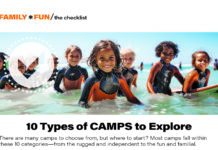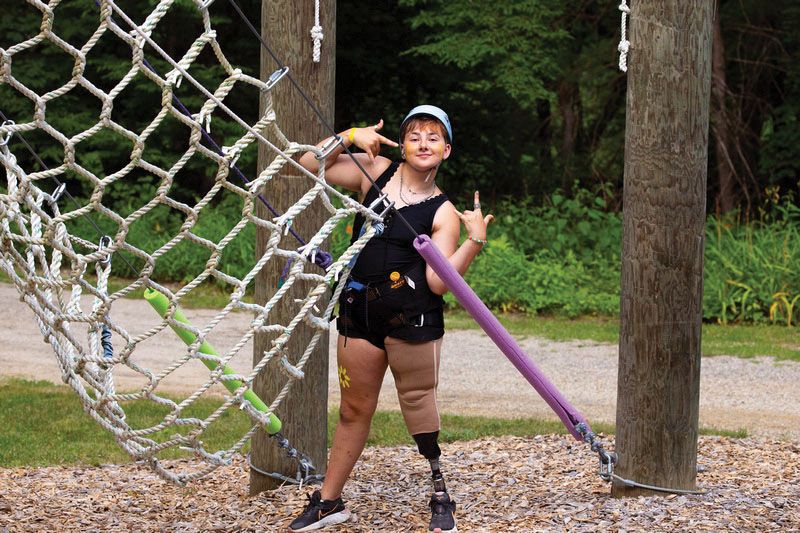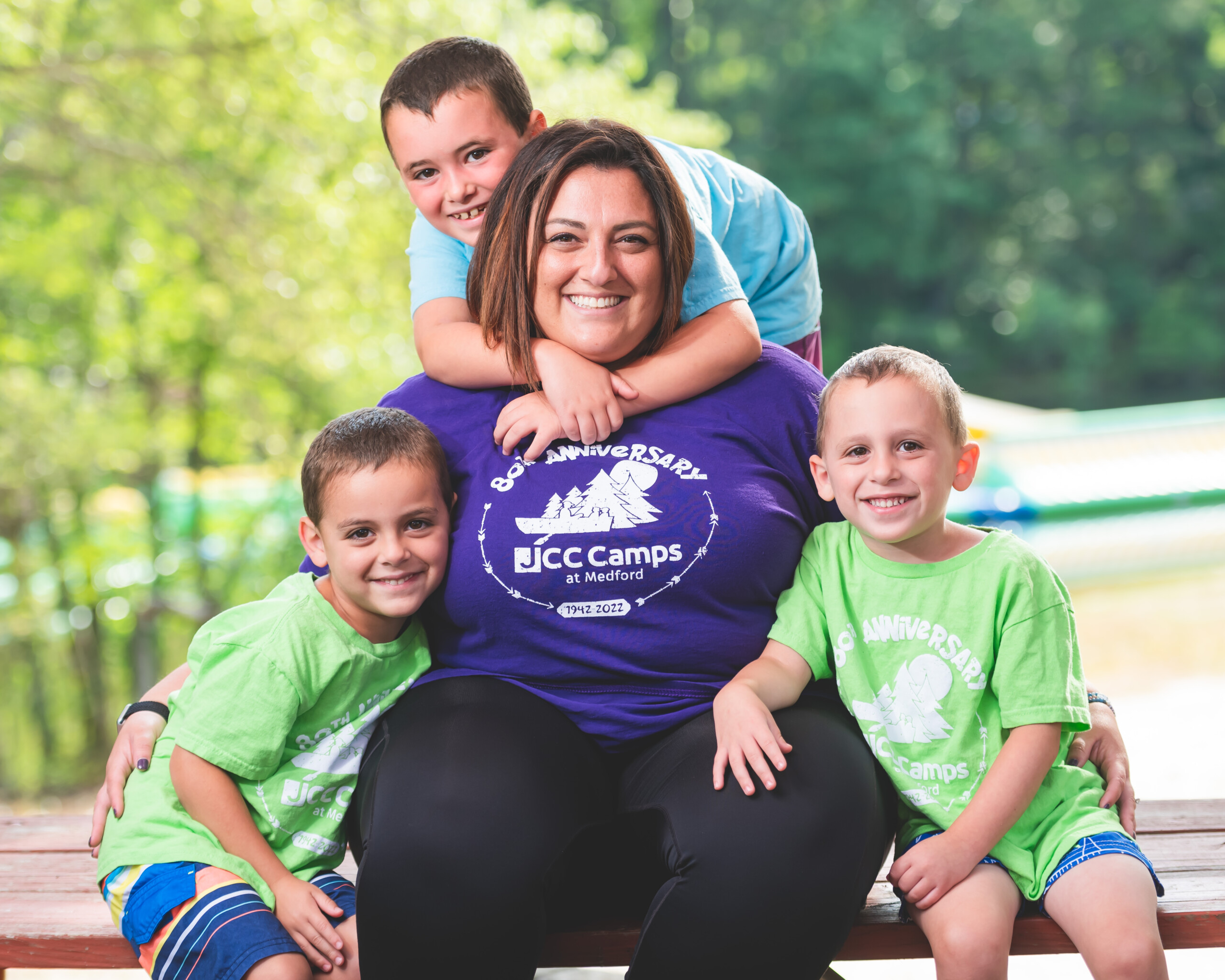As school ends and summer begins, kids of all ages swap their book bags for camp bags. For the youngest campers — 3- to 6-year-olds who may or may not have experience attending a child care center or preschool — spending time in a new place with new people can be a daunting prospect.
To help preschoolers acclimate, many camps hold pre-summer ease-in events. “We do a new camper orientation before camp that is structured similarly to a back-to-school night,” says Lynne Prairie Coates, camp administrator at the International Sports, Skating and Fun Centre (ISC) in Mt. Laurel, NJ. “We start out with the parents and kids together, and then we separate them and have some games and activities to get the campers comfortable. The kids have a good time with each other, so they want to come back.”
At Ramah Day Camp in Elkins Park, PA, counselors aim to ease first-day nerves by getting to know kids before summer starts, as well as setting up age-appropriate games to let campers get acquainted with each other as soon as camp begins. “Children have a meet-and-greet with staff before they come to camp, and we have introductory activities where we divide the age groups, so the youngest campers, aged 4 to 6, are always together,” says Eileen Graub, Ramah’s program coordinator. Parents are invited to spend time with their campers during the meet-and-greet activities — camp staples that include a mix of drama, dance, music, art, sports and nature exploration, scaled specifically to the attention span and capabilities of the preschool set.
Camp at school
Many early learning centers are year-round facilities with specialized camp programs during the summer. Youngsters who go to camp at the preschool they attend during the school year may already be comfortable in their surroundings, but they still have an opportunity to make new friends.
“There’s a steady mix of new kids and children who are here over the school year,” says Dane Hutchinson, school-age coordinator at Newark Day Nursery in Newark, DE. In fact, of Newark Day’s 105 Kindergarten campers, nearly half of them attend only during the summer session. Hutchinson says that fact expands every child’s social circle: “The children get the chance to spend time and make friends with kids they wouldn’t meet otherwise because they don’t live in their neighborhood or go to their school.”
Age-appealing activities
While campers in Newark Day’s summer program play games, create art and take field trips, staff utilize the extendedtime they have to ensure that the kids don’t take a vacation from learning. “In the summer we have campers from 6:45am to 6pm, so we are able to make a more meaningful impact,” Hutchinson explains. “Kids lose a lot of what they learn during the school year over the summer, so if we can turn a soccer game into a soccer game that involves math, we want to sneak learning in when we can.”
Smart fun is available at the full range of camps, not just school-based centers. The ISC, for example, engages young campers with weekly field trips, outdoorsy sports and activities based on a weekly theme. “We have a curriculum where, for one hour a day, the preschoolers work on one subject — it may be fairy tales, dinosaurs or insects — and the week is devoted to that,” Coates says. “We read a book about the theme, do crafts relating to it and watch a movie. We’re not trying to be school, but it keeps them interested and they seem to love it.”
While caring for a young camper can be time-consuming, Coates says it’s worth the effort to plan age-appropriate activities and hire enough staff to maintain a low preschool camper-to-counselor ratio. “We just enjoy the preschoolers so much,” she says. “They add so much to the camp.”
Cheyenne Shaffer is a MetroKids intern and journalism student at Temple University.






